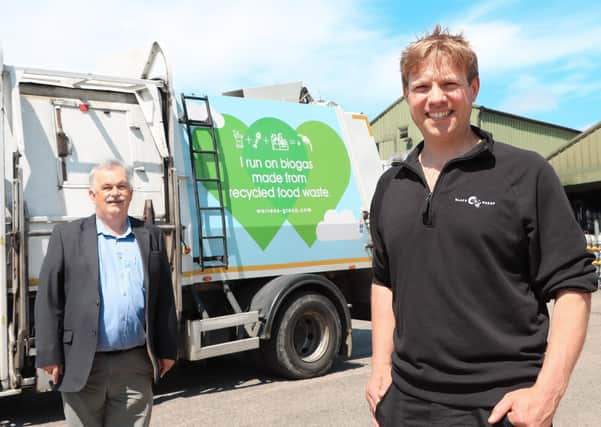Black Sheep goes green by selling old hops to make biogas


The agreement will also provide the Masham-based brewery with a new income stream, as by-products from its brewing process, such as spent grains, hops and yeast, will be purchased by Newton Aycliffe-based Warrens Group to produce biogas and fuel its fleet of gas-powered vehicles.
The deal supports Black Sheep’s aim to use 100 per cent renewable energy, and its commitment to greener brewing in line with government guidelines, which assess brewers on their energy usage and CO2 output under the Climate Change Agreement.
Advertisement
Hide AdAdvertisement
Hide AdBack Sheep head brewer Dan Scott-Paul said: “We’re really proud to enter into this new partnership with Warrens, which will make us a more sustainable brewery both financially and environmentally.
“Demonstrating that 100 per cent of our brewing by-products will support renewable energy generation is an important part of our contribution to an environmentally-conscious food and drink industry.”
He added: “It also puts us on the road to our ambition of brewing using only renewable energy, some of which will be generated by the waste products we provide.”
Warrens Group is one of the first food-waste recycling companies in the UK to power its HGV waste collection vehicles with biogas converted directly from its own customers.
Advertisement
Hide AdAdvertisement
Hide AdThe company is a pioneer of food-waste recycling, which generate more than 100 million kWh of clean, green, energy every year through its eight UK sites.
It uses a process of anaerobic digestion at its facility in County Durham to produce gas, which is then used as fuel, either for grid resources such as heat and electricity generation, or as biofuels for vehicles.